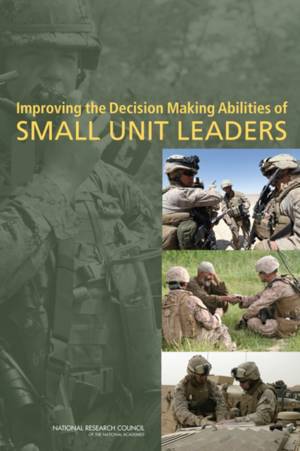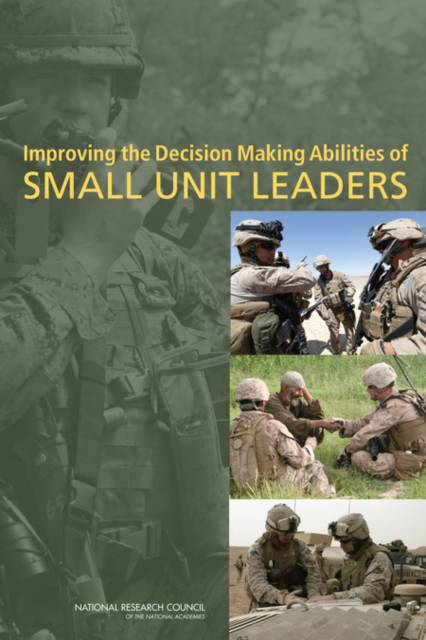
- Afhalen na 1 uur in een winkel met voorraad
- Gratis thuislevering in België vanaf € 30
- Ruim aanbod met 7 miljoen producten
- Afhalen na 1 uur in een winkel met voorraad
- Gratis thuislevering in België vanaf € 30
- Ruim aanbod met 7 miljoen producten
Improving the Decision Making Abilities of Small Unit Leaders
National Research Council, Division on Engineering and Physical Sciences, Naval Studies Board, Committee on Improving the Decision Making Abilities of Small UnOmschrijving
For the past decade, the U.S. Marine Corps and its sister services have been engaged in what has been termed "hybrid warfare," which ranges from active combat to civilian support. Hybrid warfare typically occurs in environments where all modes of war are employed, such as conventional weapons, irregular tactics, terrorism, disruptive technologies, and criminality to destabilize an existing order.
In August 2010, the National Research Council established the Committee on Improving the Decision Making Abilities of Small Unit Leaders to produce Improving the Decision Making Abilities of Small Unit Leaders. This report examines the operational environment, existing abilities, and gap to include data, technology, skill sets, training, and measures of effectiveness for small unit leaders in conducting enhanced company operations (ECOs) in hybrid engagement, complex environments. Improving the Decision Making Abilities of Small Unit Leaders also determines how to understand the decision making calculus and indicators of adversaries.
Improving the Decision Making Abilities of Small Unit Leaders recommends operational and technical approaches for improving the decision making abilities of small unit leaders, including any acquisition and experimentation efforts that can be undertaken by the Marine Corps and/or by other stakeholders aimed specifically at improving the decision making of small unit leaders. This report recommends ways to ease the burden on small unit leaders and to better prepare the small unit leader for success. Improving the Decision Making Abilities of Small Unit Leaders also indentifies a responsible organization to ensure that training and education programs are properly developed, staffed, operated, evaluated, and expanded.
Specificaties
Betrokkenen
- Auteur(s):
- Uitgeverij:
Inhoud
- Aantal bladzijden:
- 130
- Taal:
- Engels
Eigenschappen
- Productcode (EAN):
- 9780309216050
- Verschijningsdatum:
- 6/08/2012
- Uitvoering:
- Paperback
- Formaat:
- Trade paperback (VS)
- Afmetingen:
- 152 mm x 229 mm

Alleen bij Standaard Boekhandel
Beoordelingen
We publiceren alleen reviews die voldoen aan de voorwaarden voor reviews. Bekijk onze voorwaarden voor reviews.











